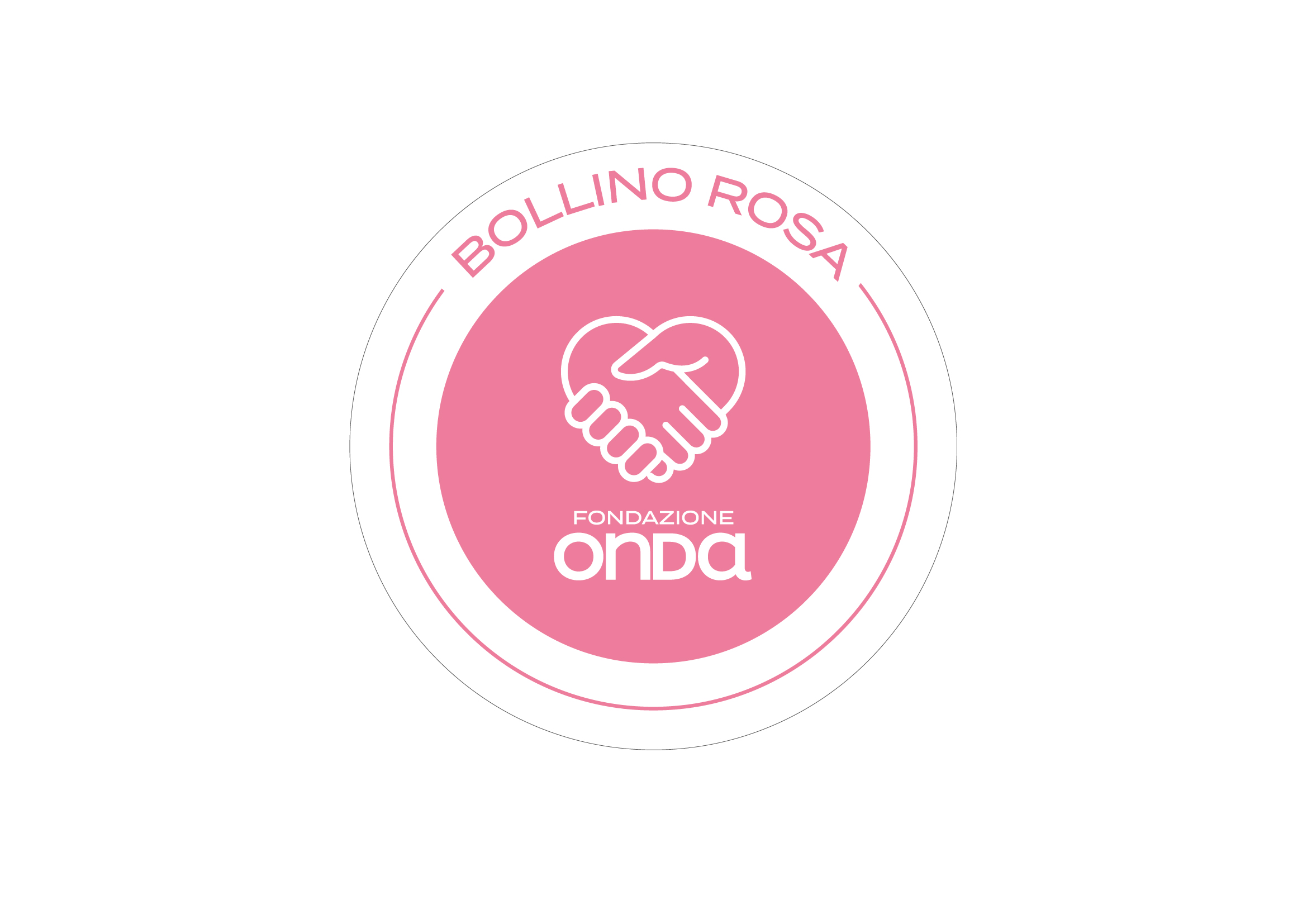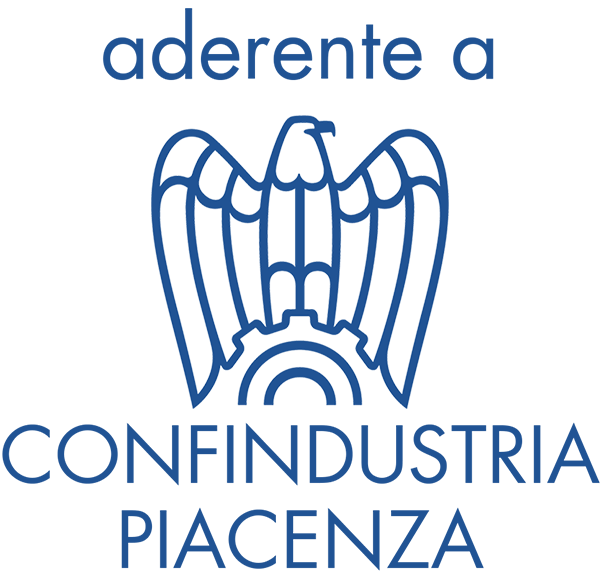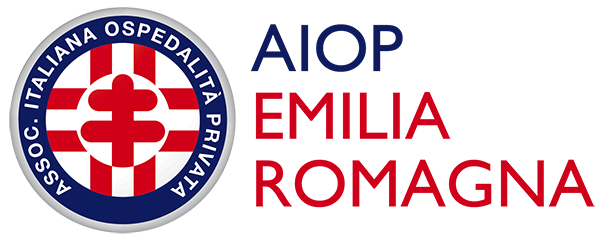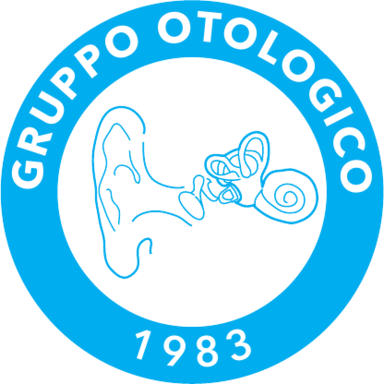Balance disorders and vertigo: a Centre of Excellence
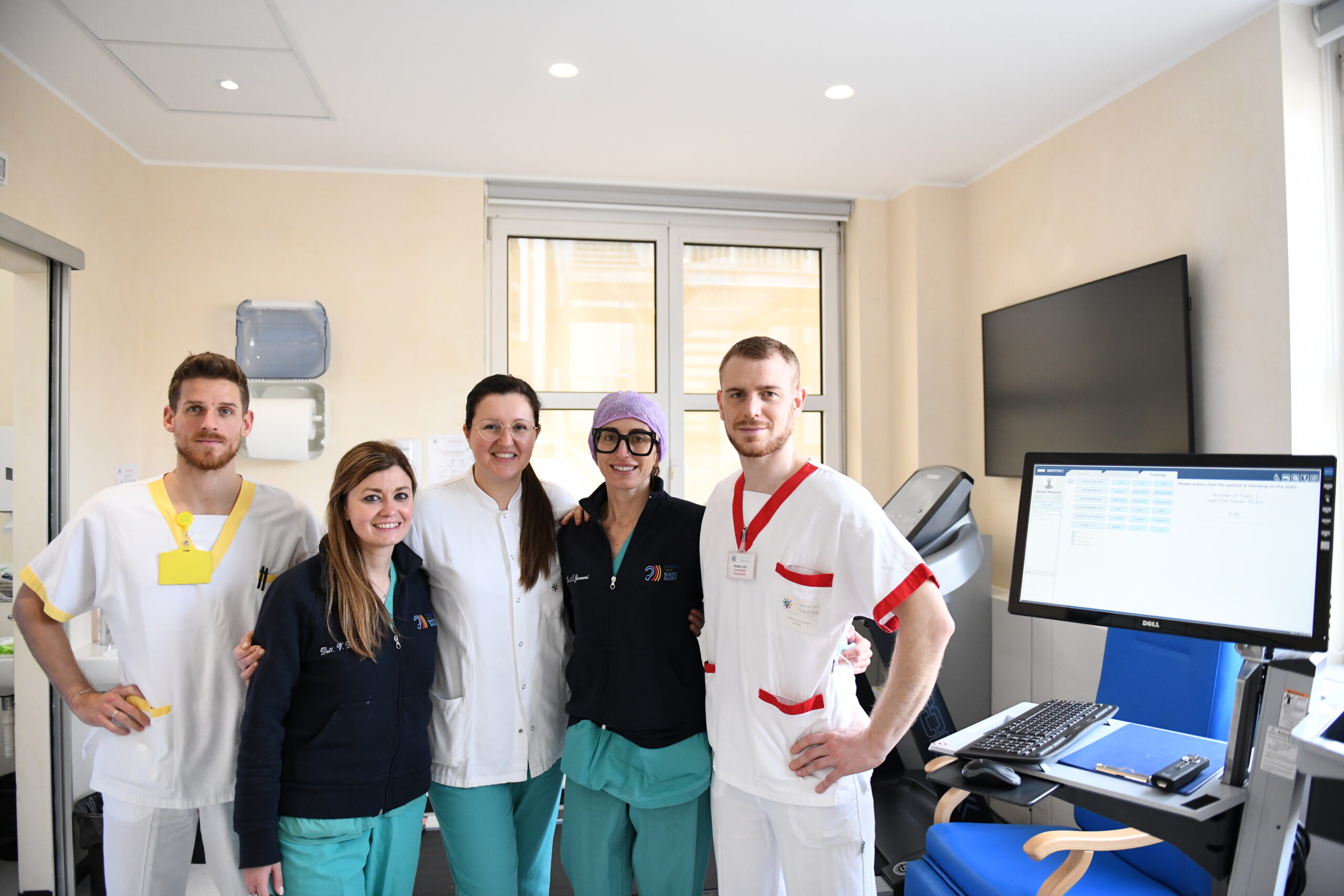
Vestibolar Centre: a point of reference for patients with instability, vertigo and ear deficits
The Gruppo Otologico, founded and directed by prof. Mario Sanna, in Casa di Cura Piacenza is Centre of excellence for the diagnosis and treatment of diseases of the ear, skull base, and paranasal sinuses. It is a real prestige for Piacenza to host the most important and leading institute for the number of cochlear implant operations and middle ear according to the Ministry of Health’s National Outomes Plans (PNE) del Ministero della Salute.
Al proprio interno troviamo anche il Centro Vestibolar, altra eccellenza che si rivolge alla diagnosi, terapia e riabilitazione vestibolare per le patologie legate all’equilibrio e che nasce nel 2021 con l’obiettivo di creare un ambiente hi-tech per superare vertigini e perdita di equilibrio, disturbi che ogni anno interessano almeno il 20-30% della popolazione italiana.
The Centre is directd by dott. Anna Lisa Giannuzzi and dott. Elisabetta Rebecchi who coordinate a team of doctrors and physuitherapists; The gym is equipped with highly specialised machines for rehabilitation and functional re-education.
Each treatment plan is preceded by a battery of instrumental examinations aimed at setting up customised exercise programmes.
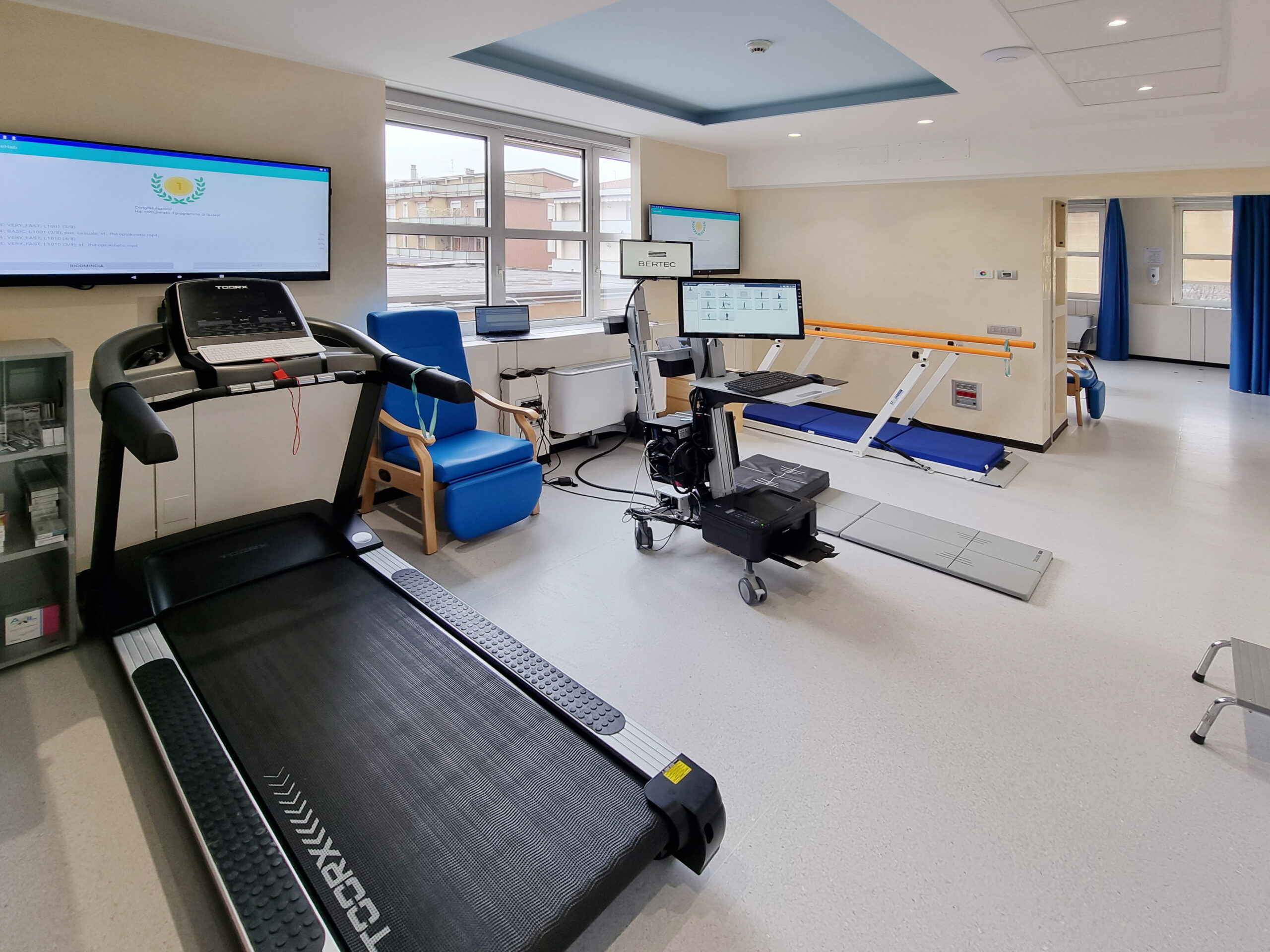
Vestibolar Centre Equipped gym of the Gruppo Otologico in Casa di Cura Piacenza
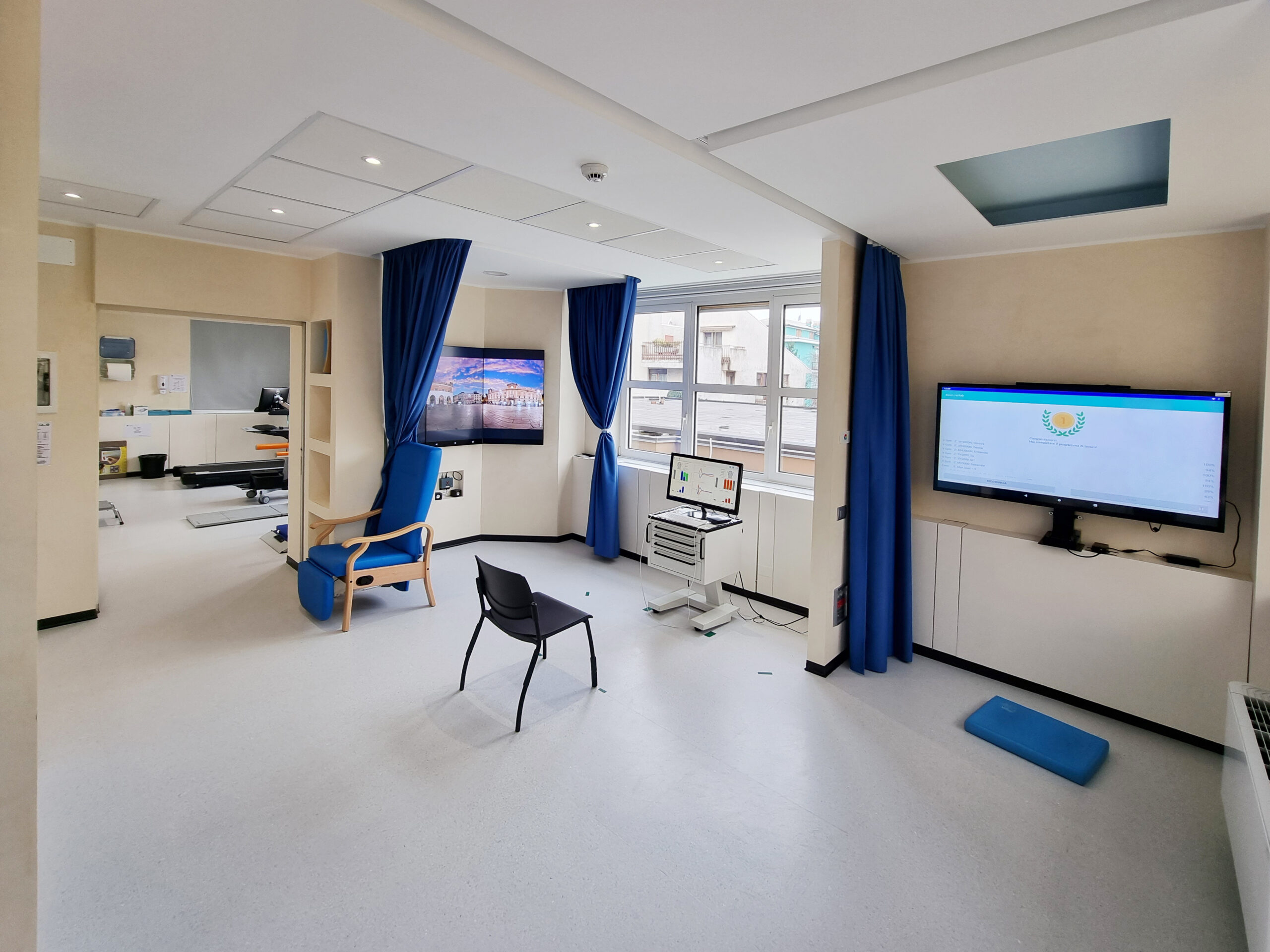
Vestibolar Centre Equipped gym of the Gruppo Otologico in Casa di Cura Piacenza
Vertigo: a definition
La vertigine è una patologia molto diffusa, è il terzo motivo di accesso al Pronto Soccorso, può presentarsi in modo continuo o episodico e con diversa intensità.
Spesso viene erroneamente definita labirintite; in realtà è un sintomo che deve essere studiato perché può rimandare a diverse cause: vertigine parossistica posizionale benigna, malattia di Menière, neurite vestibolare, emicrania vestibolare, presbiastasia (invecchiamento del sistema dell’equilibrio), patologie a carico del sistema nervoso centrale, esito di interventi chirurgici.
Characteristic symptoms of vertigo
The symptoms that the patient generally complains of are: instability, insecurity of movement, difficulty with rapid head movements, altered perception of the body in space, oscillation of the visual field, fear of falling. All this results in impairment, even severe, of autonomy and quality of life.
Vestibology: what is it?
Vestibology is a branch of Otolaryngology that studies the vestibular apparatus, which is a portion of the inner ear that regulates balance based on the position of the head and body in space by sending information to the brain. When balance presents problems, these may be due to peripheral pathologies, central pathologies or physiological ageing. Therapy is not always pharmacological; in fact, vestibular rehabilitation is balance physiotherapy. Through a programme of specific, customised exercises, the aim is to restore correct communication between the systems that regulate balance (inner ear, sight, self-perception in space).
Vestibular Centre: vestibular rehabilitation
The Vestibolar is the most advanced Vestibular Rehabilitation and Re-education Centre for the treatment of vertigo and balance disorders. Vestibular rehabilitation is balance physiotherapy.
The centre features a gymnasium with highly specialised equipment.
Visual and sound sensors, monitoring systems and interactive devices are applied to common equipment such as treadmills, parallel bars and proprioceptive mats; there is also a stabilometric platform that processes static and dynamic posture examination.
The equipment is used both for diagnosis and to implement customised rehabilitation programmes.
Finally, the patient can continue training at home by renting a tablet with a dedicated app and remote control.
The vestibular examination is a diagnostic assessment that evaluates and diagnoses the function of the balance organ located in the inner ear.
The patient’s clinical situation should be further examined by means of a series of vestibular tests:
- Bedside assessment with VNG: bedside assessment is a non-instrumental diagnosis in Otoneurology.
It consists of a series of physical manoeuvres performed by an experienced physician on the patient and allows an accurate diagnosis of vertigo even in the acute phase.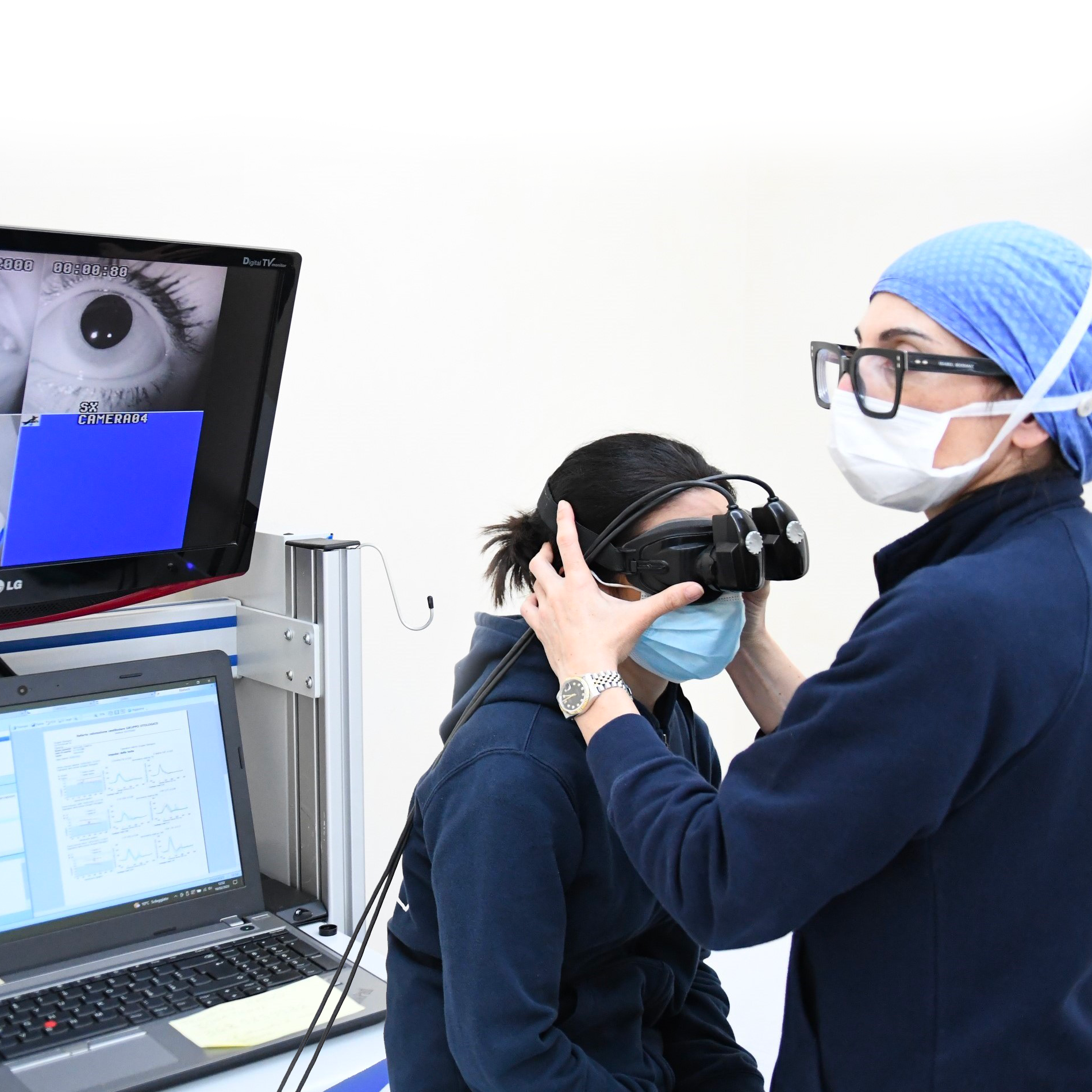
Bed Side examination with VNG, performed by Dr Anna Lisa Giannuzzi of the Otology Group in the Vestibular Centre
- v-HIT (video-Head Impulse Test): The v-HIT is a painless instrumental test that aims to study the vestibulo-oculo-motor reflex and its disorders. The test makes it possible to identify the laterality of the vestibular disorder (right or left).
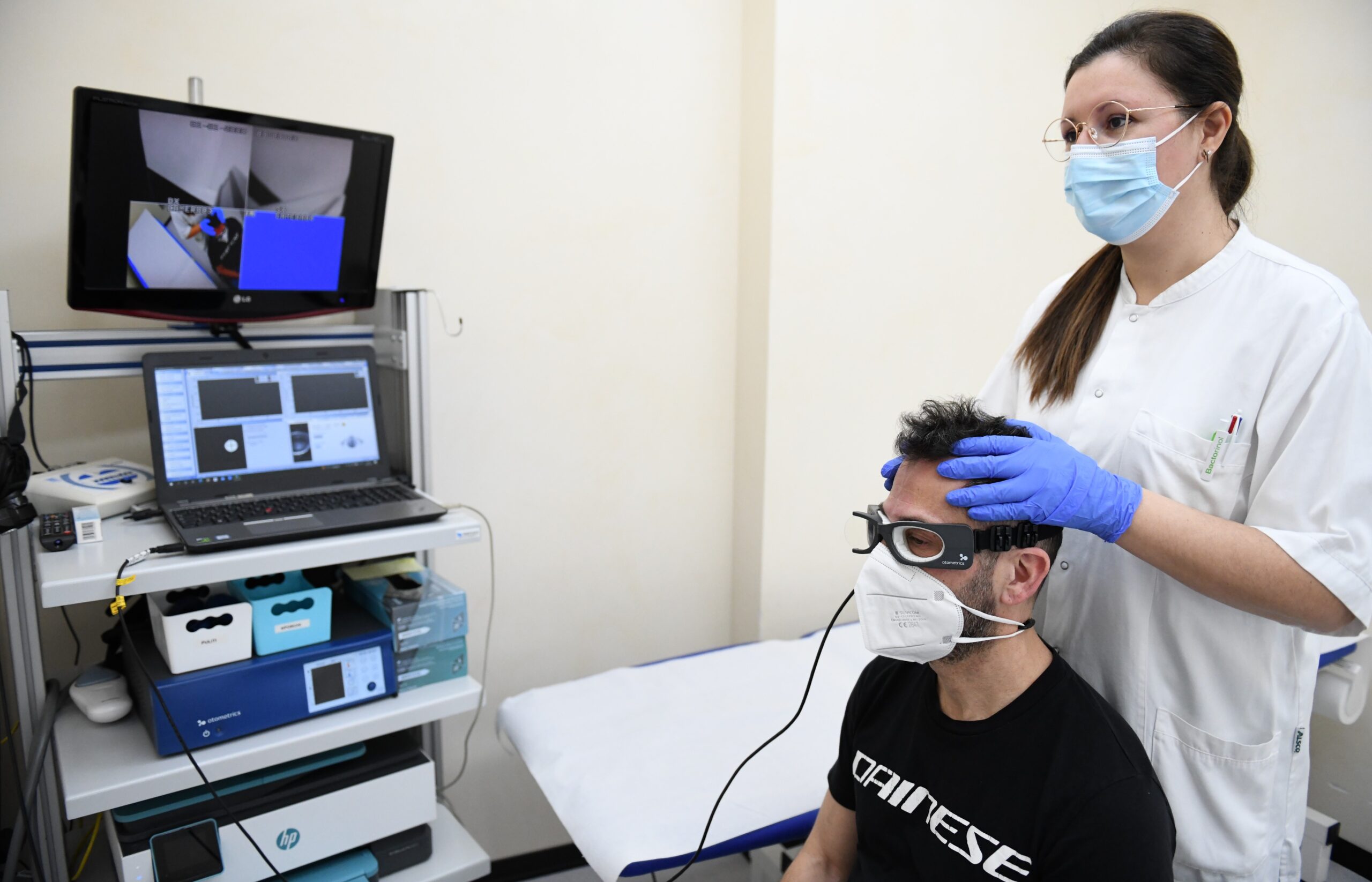
vHIT Test,with Dr Elisabetta Rebecchi of Gruppo Otologico in the Vestibolar Centre
- f-HIT (functional-Head Impulse Test): is a new device for examining the function of the vestibulo-oculomotor reflex (VOR) angle by assessing the ability to focus an image during passive, rapid head movements performed with different accelerations.
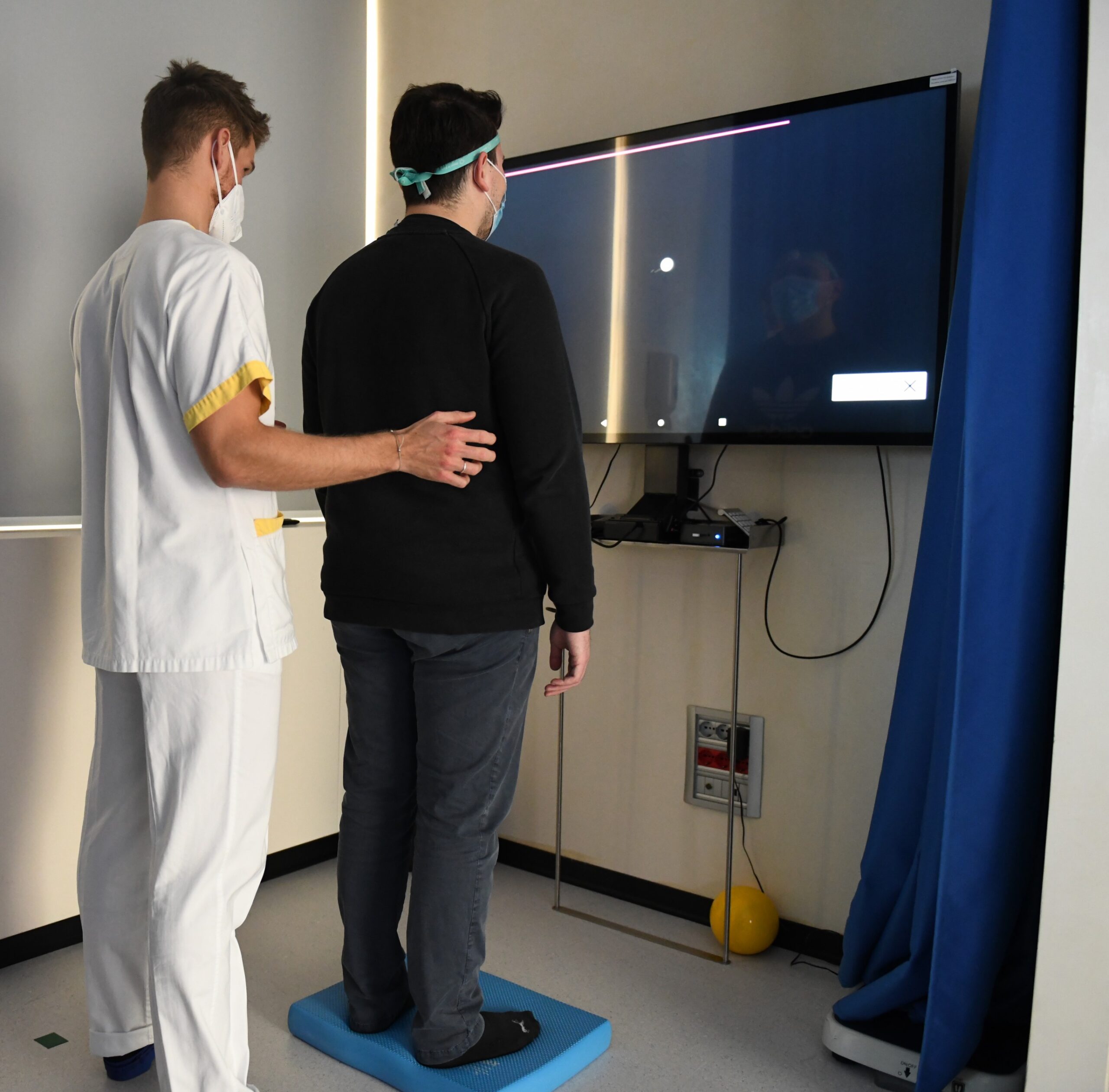
Physiotherapist Simone Faroldi at Centro Vestibolar, fHIT with V-GYM programme on unstable surface
Read more in the Vestibular Re-education video here and here.
Information and Contacts
ou can contact the Gruppo Otologico e Vestibolar Center for any information and for resevations on +39 0523.74326, via WhtasApp at +39 389.2625175 or by e-mail segreteria@gruppootologico.com.


